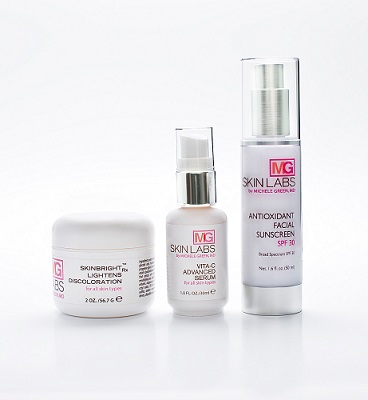Dr. Green Looks at the Most Common Skin Care Myths
Dr. Michele Green looks at some of the most common Skin Care myths, many of which have been discussed in articles across the web and in print media. Here are some of the most common ones I hear.
Acne will go away with age: False
There are many different causes for acne and although hormones can play a factor in acne, this isn’t necessarily the only reason, and it’s not dependent on age. When treating acne, it’s important to know first what’s causing it. Extractions, topical solutions and medications are all options for treatment for acne, but it is important to determine what the right treatment is. In such cases, it is worth discussing this with Dr. Green, so that a plan can be customized to your needs.
Diet, skincare products and hormone imbalances can all contribute to acne and this can change at any point in one’s life. Seeing a dermatologist to determine which course of treatment is best for you is essential to reduce acne for good.
SPF in Makeup is Enough: False
In order to get the amount of SPF coverage that is advertised in makeup, you would need to wear at least 7 times the amount of foundation that one would usually wear. In order to make sure you’re getting appropriate amounts of SPF, wearing sunscreen under your makeup is your best bet. The minimum recommended amount is SPF 30 or higher. SPF 65 has complete sunblock and is best applied 1 hour before direct skin exposure. It is also important to use a broad spectrum sunscreen as that protects from both UVA (long wave Ultraviolet rays) and UVB (short wave Ultraviolet rays) radiation. In the same vein, it is also important to always wear sunscreen, regardless of the weather.
There is no difference between over the counter products and medical/prescription strength products: Also a myth
While over the counter skincare products can be used, there are certain products that can only be given to you while under the care of a medical professional. These products are also generally more effective but they are also much stronger which necessitates the need to have a professional dermatologist overseeing one’s care. For example, for patients with hyperpigmentation they can be given a medical grade bleaching cream in order to reduce the pigment left behind from scarring. Without the consult of a professional, negative side effects can occur such as burns.

View the MGSkinLabs skin care product range
Anti-Aging Skincare is all you need: Not true
Unfortunately, there are some things that skincare cannot cure when it comes to anti-aging. The best over the counter skincare can do in regards to this is plump up the skin and hydrate it. It cannot address issues such as deep lines, loss of skin elasticity, and loss of fat in certain areas.
By going to a dermatologist you can look at several treatment options that can help with anti-aging. Prescription strength creams such as Retin-A can help counteract deeper wrinkles and fine lines. Botox and fillers such as Juvederm and Restylane can plump wrinkles and volume loss. Skin tightening lasers such as Thermage can help build new collagen and lasers such as Fraxel and Clear and Brilliant can help with sun damage, sun spots and wrinkles.
 212-535-3088
212-535-3088